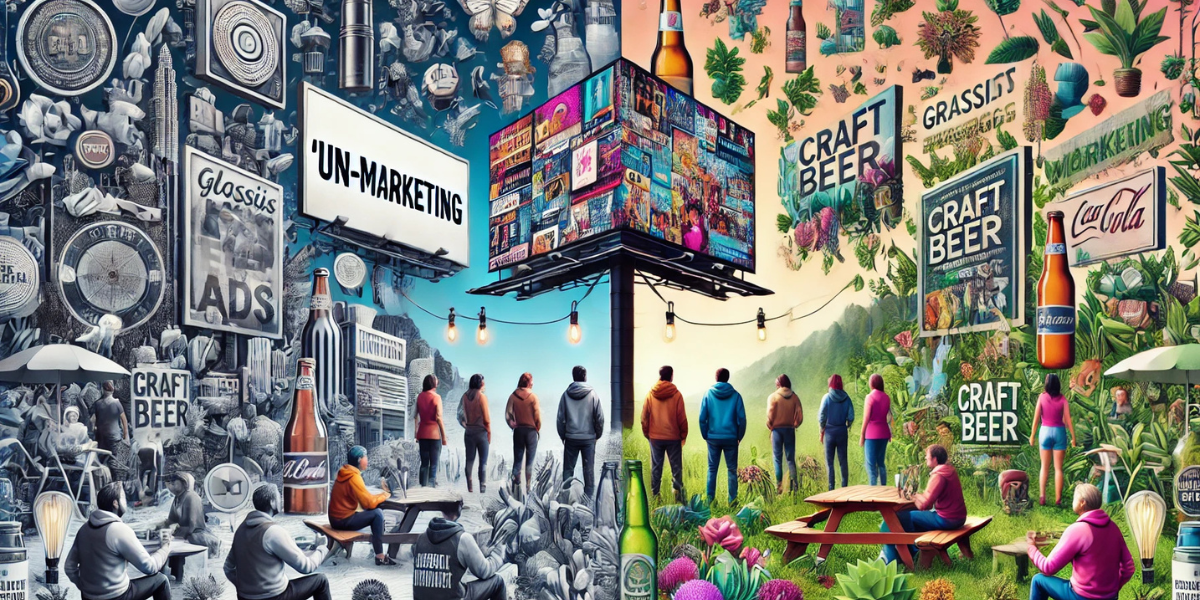In the rapidly evolving world of digital marketing, artificial intelligence (AI) stands out as a game-changer. By harnessing AI technologies, companies can create highly personalized and efficient campaigns, driving significant business results. This article delves into five exemplary case studies, showcasing how leading companies like Coca-Cola, Netflix, Amazon, Starbucks, and Sephora have successfully integrated AI into their marketing strategies, achieving remarkable outcomes.
1. Coca-Cola: Personalization at Scale
Coca-Cola has a long history of pioneering innovative marketing strategies, and their adoption of AI is no exception. The “Share a Coke” campaign is a notable example where AI played a crucial role. By personalizing bottles with common names, Coca-Cola created a unique and engaging customer experience.
How AI was used:
- Data Analysis: Coca-Cola utilized AI to analyze large datasets from social media, sales, and customer feedback. This data-driven approach enabled the company to understand consumer preferences and behaviors deeply.
- Natural Language Processing (NLP): NLP was used to interpret and categorize customer feedback from various online platforms, providing insights into customer sentiments and trends.
- Personalization Algorithms: AI algorithms were employed to customize the product offerings, ensuring that the names on the bottles resonated with a wide audience.
Technologies Used:
- Machine learning for data analysis.
- NLP for sentiment analysis.
Results:
- The campaign increased sales by over 2%.
- Social media engagement saw an 870% boost, with millions of consumers sharing their personalized Coke bottles online.
The success of the “Share a Coke” campaign underscores the power of AI in creating personalized and impactful marketing strategies. By leveraging AI, Coca-Cola not only enhanced customer engagement but also boosted its brand visibility and sales.
2. Netflix: Enhancing User Experience with AI
Netflix is a prime example of a company that has effectively harnessed AI to transform its user experience. The company’s recommendation system, driven by AI, plays a pivotal role in keeping subscribers engaged and satisfied.
How AI was used:
- Content Recommendation: Netflix uses collaborative filtering algorithms to suggest content based on users’ viewing history and preferences. These algorithms analyze patterns in user behavior to predict what viewers might enjoy next.
- Deep Learning: Advanced deep learning models are employed to refine these recommendations further, considering factors like the time of day, the device used, and even the user’s recent activity.
- A/B Testing: AI is also used in A/B testing to optimize the user interface and content presentation. By continuously experimenting and learning from user interactions, Netflix ensures a seamless and engaging viewing experience.
Technologies Used:
- Collaborative filtering algorithms.
- Deep learning models.
Results:
- Over 80% of the content watched on Netflix is based on AI-driven recommendations.
- The personalized approach has significantly reduced churn rates, keeping subscribers engaged and loyal.
Netflix’s success with AI highlights the importance of personalization in today’s digital landscape. By delivering tailored content, Netflix not only enhances the user experience but also maintains a competitive edge in the streaming industry.
3. Amazon: Dynamic Pricing and Personalized Recommendations
Amazon’s use of AI extends across various facets of its operations, from inventory management to customer service. However, its most impactful application of AI is in dynamic pricing and personalized recommendations.
How AI was used:
- Dynamic Pricing: Amazon uses real-time data processing and machine learning algorithms to adjust prices dynamically. These algorithms consider various factors, including supply and demand, competitor pricing, and customer browsing behavior.
- Recommendation Engine: Amazon’s recommendation engine analyzes vast amounts of data, including purchase history, browsing patterns, and even mouse movements. This data-driven approach enables Amazon to suggest products that customers are likely to purchase, enhancing the shopping experience.
Technologies Used:
- Real-time data processing.
- Machine learning algorithms for dynamic pricing.
- Recommendation engines.
Results:
- The dynamic pricing strategy has contributed to a 35% increase in sales.
- Personalized recommendations account for a significant portion of Amazon’s revenue, driving both sales and customer satisfaction.
Amazon’s use of AI demonstrates how data-driven personalization and pricing strategies can significantly impact a company’s bottom line. By leveraging AI, Amazon continuously optimizes the shopping experience, ensuring that customers find what they need at the right price.
4. Starbucks: Predictive Analytics for Personalized Marketing
Starbucks has embraced AI to enhance its marketing efforts, particularly through its mobile app. By leveraging predictive analytics, Starbucks offers personalized recommendations and promotions, driving customer engagement and loyalty.
How AI was used:
- Predictive Analytics: The Starbucks app uses AI to analyze customer data, including purchase history, preferences, and even external factors like weather conditions. This analysis enables the app to make personalized recommendations and offers.
- Machine Learning Models: Machine learning models are employed to predict what customers are likely to purchase based on their past behavior. For example, the app might suggest a cold beverage on a hot day, tailored to the user’s taste preferences.
Technologies Used:
- Predictive analytics.
- Machine learning models.
Results:
- Increased app engagement and sales as customers are more likely to respond to personalized offers.
- Improved customer loyalty and satisfaction through tailored recommendations and rewards.
Starbucks’ use of AI for predictive analytics showcases the potential of personalized marketing. By offering tailored experiences, Starbucks not only enhances customer satisfaction but also drives sales and builds loyalty.
5. Sephora: AI-Driven Beauty Advisor
Sephora has integrated AI into its customer service strategy, particularly through its Sephora Virtual Artist chatbot. This AI-driven beauty advisor enhances the shopping experience by providing personalized recommendations and virtual try-ons.
How AI was used:
- Virtual Try-Ons: The Sephora Virtual Artist uses augmented reality (AR) to allow customers to try on makeup virtually. This feature helps customers visualize how different products will look on them, enhancing the shopping experience.
- Chatbot Assistance: The AI-powered chatbot provides personalized recommendations based on customer queries and preferences. It also guides customers through the purchasing process, making it seamless and efficient.
- Data Analysis: AI analyzes customer interactions and feedback to continually improve the recommendations and virtual try-on experience.
Technologies Used:
- Augmented reality for virtual try-ons.
- Chatbot powered by machine learning.
Results:
- Online sales increased by 30% due to the enhanced shopping experience.
- Improved customer interaction and satisfaction, as customers can make more informed purchasing decisions.
Sephora’s AI-driven initiatives illustrate how technology can revolutionize the retail experience. By providing personalized and interactive shopping options, Sephora has significantly enhanced customer engagement and satisfaction.
Conclusion
These case studies demonstrate the transformative potential of AI in marketing. Companies like Coca-Cola, Netflix, Amazon, Starbucks, and Sephora have effectively harnessed AI technologies to create personalized and efficient marketing strategies, driving significant business results.
Key Takeaways:
- Personalization is Key: AI enables companies to offer highly personalized experiences, enhancing customer satisfaction and loyalty. Whether it’s Netflix’s tailored content recommendations or Starbucks’ personalized offers, customization drives engagement.
- Data-Driven Decisions: AI allows companies to analyze vast amounts of data, providing actionable insights that drive marketing strategies. Amazon’s dynamic pricing and Coca-Cola’s name personalization are prime examples of data-driven decision-making.
- Enhanced Customer Experience: AI technologies like chatbots, virtual try-ons, and predictive analytics improve the overall customer experience, making interactions more engaging and efficient.
- Continuous Improvement: AI enables continuous learning and improvement. Companies can refine their strategies based on real-time data and customer feedback, ensuring they stay ahead of the curve.
As AI continues to evolve, its role in marketing will undoubtedly expand, offering even more opportunities for innovation and customer engagement. For businesses looking to stay competitive, embracing AI is not just an option but a necessity. By leveraging AI, companies can create more effective, personalized, and impactful marketing campaigns, driving growth and success in today’s digital landscape.








